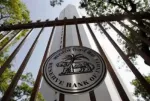Key Points
Iran insists talks will focus solely on nuclear issues
Oman mediating high-level diplomatic discussions
US Special Envoy Steve Witkoff to represent Washington
Potential path to reviving 2015 nuclear deal
The talks will be held with the mediation of Omani Foreign Minister Badr al-Busaidi, Iranian media reported on Saturday.
"Iran has repeatedly emphasised that it will not accept threats in these talks and will only discuss the nuclear issue on the basis of win-win negotiations," reported Iran's Tasnim News Agency.
Iranian Foreign Minister Seyed Abbas Araghchi, who will be heading the country's delegation at Muscat talks, has maintained that the negotiations with the United States on Iran's nuclear programme can lead to an agreement, provided that Washington demonstrates the "necessary and sufficient" political will.
US Special Envoy to the Middle East Steve Witkoff would be the US representative.
"If the other party comes to the negotiating table with [an attitude of] equal footing, there will be a chance for an initial understanding that would mark a path for the negotiations," IRNA News Agency quoted Araqchi as saying on Saturday.
Araghchi has emphasised in the past that Iran's nuclear programme was completely "peaceful and legitimate," adding Iran was ready to resolve any existing ambiguity about its nuclear activities.
US President Donald Trump, in an interview with NBC News in late March, threatened to launch "unprecedented military strikes" on Iran if it refused to negotiate over its nuclear programme.
Iran signed a nuclear deal, formally known as the Joint Comprehensive Plan of Action, with six major countries -- Britain, China, France, Germany, Russia, and the United States -- in July 2015, accepting restrictions on its nuclear programme in return for sanctions relief.
However, the United States withdrew from the deal in May 2018 and reinstated sanctions, prompting Iran to scale back some of its nuclear commitments. Efforts to revive the nuclear deal have not achieved substantial progress.







Reader Comments
We welcome thoughtful discussions from our readers. Please keep comments respectful and on-topic.